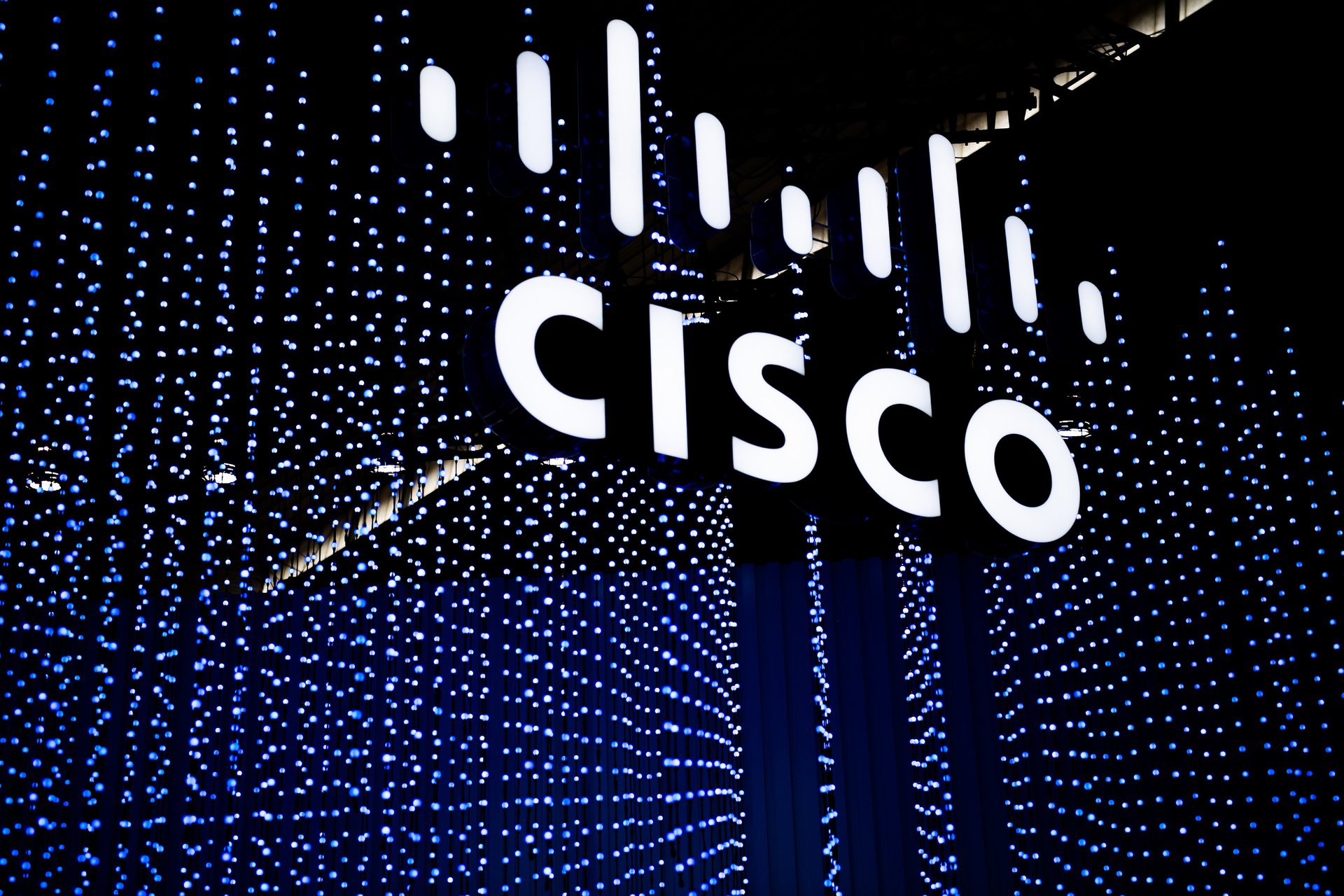Cisco has joined the quantum computing race
A new Cisco chip focuses on scaling up quantum networks

Cisco Systems (CSCO) became the latest tech company to announce a new quantum computing chip, following similar announcements in recent months from Google, IBM, and Microsoft. With each new development, the timeline for the technology to scale up and see use in real-world situations gets shorter and shorter.
Suggested Reading
While Nvidia (NVDA) CEO Jensen Huang said in January that quantum computing would not be usable for at least 20 years — which sent stocks of quantum companies tumbling — Cisco and others say the revolution might begin as early as 2030.
One Cisco exec said that quantum is about to have its “ChatGPT moment,” at which point skeptics recognize the exponential advances and practical uses of a once-fantastical technology. Of course, skepticism remains.
Cisco’s contribution to the sector is its new entanglement source chip, revealed yesterday. Entanglement is when two particles are connected even over a vast range, via quantum teleportation. Albert Einstein called this “spooky action at a distance.” Cisco claimed its chip generates up to one million entangled photon pairs per second, at room temperature, meaning less energy use.
The company also said the chip is compatible with existing fiber-optic infrastructure and uses less than one megawatt of power; traditional supercomputers use upwards of 30 megawatts. Cisco’s chip “enables quantum networks to scale,” the company said in a press release.
It’s that vendor-agnostic network that the company aims to assist all companies building quantum processors: “By building this infrastructure now, Cisco is helping to accelerate the entire quantum ecosystem,” it said. “This approach mirrors Cisco’s historical strength in networking—we don’t need to pick winners because we’re building the networking fabric that will enable various quantum technologies to scale.”
Quantum technology runs on qubits — as opposed to traditional bits in coding — and the challenge is to use more qubits, which are incredibly fragile and susceptible to interference, while reducing errors. Quantum-error correction has been the industry’s biggest challenge for the past 30 years.
IBM’s (IBM) chips have more qubits than Google’s (GOOGL) but the latter claims their chips are more reliable — even while using more qubits. Microsoft (MSFT) announced its own quantum chip in February, using fewer qubits and again claiming it was less error-prone than competitors’.
Potential uses of quantum technology include the development of energy alternatives, new drugs, and superior battery power.
It also raises serious cybersecurity concerns, with its ability to break through data encryption.
Cisco also announced it’s opening a quantum lab in Santa Monica, California.
